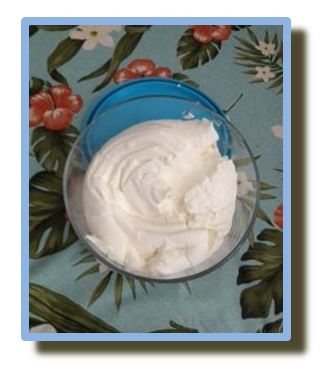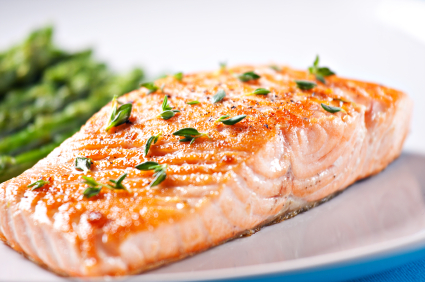What foods do leading nutrition experts say are best for sports? Here's the ones they picked:
All-star foods

The following foods had at least three mentions from our group:
Posted November 10, 2012
- Greek yogurt (7)
- Chocolate milk (6)
- Peanut butter (4)
- Fruit/dried fruit (5)
- Bananas (4)
- Oatmeal (3)
- Sweet Potatoes (3)
- Nuts (3)
- Avocado (3)
- Greek yogurt: it is a great source of protein and is an eat-alone, or add-to food.
- Almonds: protein, healthy fats, calcium, some fiber; good as they are, or added to cereal, rice, or salads.
- Oatmeal: whole grains, energy source and you can add your own flavorings, fruit, nuts, or sweetener.
- Fruit: I really like dried fruit such as apricots, plums, cherries, or raisins because they are convenient, a great source of energy, and are sweet, so they are easy to eat!
- Beans: protein, fiber, in soups, as a dip, added to a stew/chili, eaten as a side dish.
- Water. Although technically not a food, it is most important
- Dairy to replace electrolytes and keep bones strong and growing (cheese, organic chocolate milk, 2% Greek yogurt)
- Fat from salted nuts/seeds/nut butters for nutrient "cross coverage", these foods contain protein, electrolytes and trace minerals that help all systems work better. Olives and avocados are fruits found in the fat group and deserve an honorable mention.
- Protein for iron and muscle repair and growth (hard boiled eggs, sliced turkey or roast beef, nitrate-free turkey franks or hot dogs)
- Fruits and vegetables such as kiwi, cherries, cherry tomatoes, strawberry, orange, broccoli, peppers and avocado (guacamole) with high vitamin C because they help increase iron absorption, increase fiber and acts as anti-oxidants to reduce free radical damage from intense exercise. Honestly most any fruit or vegetable works.
- Greens - for their natural nitric oxide which helps fuel performance by lowering blood pressure, meaning an athlete uses less oxygen while exercising.
- Cherries - for anthocyanins and melatonin which helps by reducing muscle soreness, enhancing recovery and assisting with sleeping.
- Salmon - for great Omega-3-fatty acids which helps with anti-inflammation and improving the oxidation response.

- Oatmeal - awesome complex carbohydrates for stable blood sugars which help by allowing the body to use fat for fuel and not tapping glycogen stores too soon. This is particularly helpful for longer-endurance events.
- Dark chocolate - significant phytochemicals for help preventing free-radical damage, or muscle damage, during exercise. Besides, who doesn't love an ounce a day of dark chocolate?
I would also include eggs, chocolate milk, sweet potatoes, berries and tea on my list because I can't stop at just five!
Nutrient-dense foods from these groups:
- Whole & Multi grains: high fiber content will help the gastrointestinal tract;
- Vegetables: 2.5 cups per day; be colorful, provide important phytochemicals and vitamins;
- Fruits: 1.5 cups per day. Bananas, apples, berries top the list;
- Milk/Dairy: provide protein and calcium but be aware of fat content;
- Meats & Beans: lean cuts of meats, kidney beans, white beans provide good sources of protein and zinc; and
- Fats/Oils: remember that a balanced diet is NOT fat-free. Choose fish, nuts (in moderation), avocados. "Good" fats provide for heart health & brain function.
My top five foods for sports nutrition are:
- Natural peanut butter and jelly on 100% whole wheat bread
- 1 cup of 1% Chocolate Milk
- Tuna with lettuce and tomato on 100% whole wheat bread
- Greek yogurt with fresh berries and granola
- Apple slices dipped in natural peanut butter.
- Brown Rice: A carbohydrate rich in nutrients and fiber.
- Sweet Potatoes: Vitamin rich, easy to find, and quite tasty (try a baked one for breakfast!)
- Spinach: Popeye was right. Don't like it raw? Add it to stir fries and scrambled eggs.
- Blueberries: Just right on your morning oatmeal with yogurt.
- Salmon: Healthy proteins are so important for growing bodies!
- Low fat dairy/non-dairy products such as milk, soy milk, yogurt, cheese
- Bananas, oranges or other potassium-rich fruits
- Nuts or nut butters (peanut, cashew, almond, etc)
- Whole grain cereal, crackers and pretzels
- Dried fruit
- Walnuts
- Avocado
- Beets
- Eggs
- Greek yogurt
- Peanut butter
- Bagels
- Fresh fruit
- Chocolate milk
- Granola bars
- Yogurt - either regular or Greek-style, low fat yogurt is an excellent source of calcium, protein, and a myriad of other life-sustaining nutrients. For dieting athletes who don't want to "drink their calories" in milk, yogurt is a great way to boost calcium intake.
- Bananas - the original pre-wrapped sports snack ready to grab-and-go, with or without peanut butter.
- Oatmeal - a h
 eart-healthy whole grain that is an easy-to-digest pre-exercise meal or snack that offers sustained energy.
eart-healthy whole grain that is an easy-to-digest pre-exercise meal or snack that offers sustained energy. - Graham crackers - a whole-grain snack that is easy to digest, tastes good, and when spread with peanut-butter and made into a "cracker sandwich" is a crunchy snack that's a tasty alternative to a granola bar.
- Chocolate milk - way better than a sports drink for recovery!
- Greek yogurt. It's loaded with protein. Add some fruit and you have a winning combo.
- Whole wheat pasta. A healthy way to get in carbs pre or post workout. You can add a variety of sauces for versatility.
- Bananas. A great source of carbs and potassium.
- Chocolate milk. A perfect combo of carbs and protein that both kids and adults love
- Sweet potatoes. A great source of lower glycemic carbs, loaded with nutrients
From a personal standpoint, I need to add in chocolate-flavored sports gel (not sure if you call that a food, but I love it and it has saved me many times from bonking. It's also convenient and takes up minimal space in my cycline).
Posted November 10, 2012









